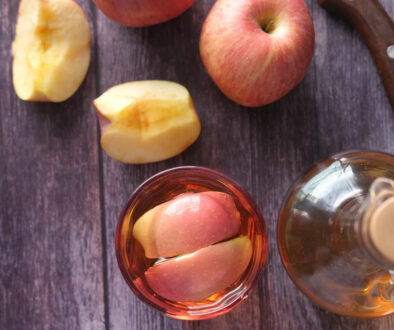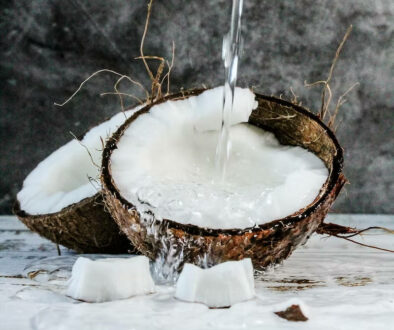Immune-Boosting Foods to Keep You Healthy This Winter
Winter may be the season of good cheer in the northern hemisphere, but it also the season of coughs, colds, and flu. That’s even before coronavirus came onto the scene. Your immune system is working overtime at this time of year, fighting off infections and helping to keep you healthy. So you need to take good care of it!
Eating a healthy diet is a great way to keep your immune system in top infection-fighting shape, as well as supporting your general physical and mental wellbeing. But there are certain foods that do more than others to boost our immune systems. The key is to look for foods which are rich in nutrients that support our immune response. We’ve compiled a comprehensive guide to these essential nutrients and which foods you should eat to get enough of them.
But before we get started, a quick note on looking after your health. Diet and nutrition can do amazing things to support your body and mind. But it is also important to get enough sleep, exercise regularly, relieve stress, and wash your hands often to give your immune system the best chance of fighting off any infections you encounter this winter.
1. Vitamin C
Vitamin C is the well-known superstar of immune support. It plays a number of roles in our immune defence, including the function of our immune cells, the production of hormones which affect how our cardiovascular system responds to severe infections, and making our skin an effective barrier against germs.
Being deficient in vitamin C has been linked to higher rates of infectious disease and can ultimately cause scurvy. We should all be aiming to consume 100–200 mg of vitamin C every day to support our immune systems, but many people are not getting enough, even in countries where the availability of healthy food is relatively good.
The best sources of vitamin C are fruit and vegetables. Make sure your diet contains plenty of these foods to get enough:
- Citrus fruits; oranges, tangerines, grapefruits etc. While you probably wouldn’t eat a lemon or a lime, infusing them in hot or cold water can make a tasty drink with an extra boost of vitamin C
- Potatoes; boil, steam or roast them to get the best benefits – frying destroys many of the essential nutrients
- Dark green vegetables: broccoli, spinach, and Brussel sprouts are all good sources of vitamin C
- Bell peppers: eat them raw for the ultimate vitamin C boost
- Tomatoes: chopped up in a salad or mixed with herbs for a tasty salsa, tomatoes are a great source of vitamin C

2. Vitamin E
While most people know about the importance of vitamin C in supporting our immune systems, fewer know that vitamin E also has a significant role to play. Vitamin E stimulates the immune system by increasing the production of lymphocytes, a group of white blood cells which help to fight infections. Taking a vitamin E supplement has been found to increase our resistance to infectious diseases.
Nuts, seeds, green vegetables, and vegetable oils are all good sources of vitamin E. Aim to include some of the following in your daily diet to make sure you get enough:
- Almonds
- Sunflower seeds
- Avocados
- Spinach
- Broccoli
- Olive oil

3. Beta-Carotene
This precursor to vitamin A is responsible for the orange pigment in foods like carrots, squash, and sweet potatoes, which are all great sources of the immune-boosting nutrient.
Beta-carotene is a powerful antioxidant that helps to stimulate the production of white blood cells. As an antioxidant, it also helps to balance out harmful free radicals, preventing a condition called oxidative stress which can lead to chronic diseases, including high blood pressure, cancer, and diabetes.

4. Selenium
The mineral selenium is another antioxidant. Like beta-carotene, it helps to prevent chronic disease by preventing oxidative stress. Selenium is also essential to our immune systems’ ability to ward off infectious diseases effectively and efficiently. Additionally, selenium has been found to play a part in the healthy function of our thyroids, which help to regulate our metabolisms. Foods that are a good source of selenium include:
- Brazil nuts
- walnuts
- sardines
- sunflower seeds
- tuna
- salmon

5. Zinc
You can take zinc as a supplement, but it is also found in a range of foods, including pumpkin seeds, oats, red meat, oysters, almonds, and legumes. Not getting enough zinc can affect how well our white blood cells function, making us more vulnerable to getting sick. Zinc is also important in preventing inflammatory diseases like arthritis. Make sure you get enough to keep your body healthy.
6. Vitamin D
If you read our recent article on vitamin D, you already know that it has been found to reduce the chances of getting upper respiratory diseases like the flu. Research is increasingly finding that this vitamin plays an important part in the efficient functioning of our immune system, helping us to fight off infection more readily.
Vitamin D is unusual because we can make it ourselves when we get enough sunlight. Sadly, in the winter months it is hard to get enough sun, which is annoyingly the exact point when we could use a vitamin D boost to support our immune systems. Most people should take a supplement during the winter.
Search Vitamin D Supplements on Amazon
You can also find vitamin D in the following foods:
- Oily fish, such as sardines, mackerel, salmon, and halibut
- Mushrooms
- Eggs
- Foods fortified with vitamin D, such as breakfast cereals, plant milks, and margarine

7. Prebiotics
Scientists are increasingly uncovering the important role that our gut plays in our ability to fight off infections, with almost 70% of our immune system located in our guts. And for our gut to function well, we need to look after the microflora that populate it. In other words, we need to feed the good bacteria.
Prebiotic foods are those which nourish the beneficial bacteria in our guts. A prebiotic is a form of fibre, found in a number of plant-based foods, including:
- Asparagus
- Spring onions
- Beetroot
- Chicory
- Jerusalem artichokes
- Legumes
- Nectarines
- Dried fruit, such as dates or figs
- Pomegranates
- Watermelon
- Cashews
- Pistachio nuts
- Whole-grains

8. Probiotics
As well as eating a wide-range of prebiotic foods to feed the good bacteria already present in our guts, we can support the healthy development of our guts’ microbiomes by eating probiotic foods that contain the bacteria themselves. To boost your levels of good bacteria, look out for fermented foods like live yoghurt, kefir, sauerkraut, kimchi, tempeh, kombucha, and miso.

9. Allicin
Allicin is an active ingredient in garlic, as well as onions, chives, and spring onions. It has antimicrobial properties which are well-known for their ability to fight off infectious germs, and supports the cardiovascular system, reducing the chances of having high blood pressure. The benefits of allicin do reduce though the longer you cook it – spring onions and chives are good options as they are mild enough in flavour that they can be eaten raw and still taste delicious. You might also consider taking garlic as a supplement to get the benefits without the strong flavour of raw garlic.
Search Garlic Supplements on Amazon

10. Flavonoids
Another powerful immune-boosting antioxidant, flavonoids from food have been found to reduce the chances of becoming sick with upper respiratory illnesses such as colds and sore throats.
Flavonoids are commonly found in fruits, especially berries and citrus fruits. Good sources include:
- Blueberries
- Blackberries
- Cherries
- Raspberries
- Pomegranates
- Oranges
You can also find flavonoids in certain other foods, including dark chocolate, red wine, and tea.

Conclusion
There is a lot we can do to support the function of a healthy immune system through the foods we eat. This comprehensive list should give you plenty of ideas of the foods you should be including in your diet this winter to give you the best chance of staying healthy.
A balanced diet that contains a wide range of fruits, vegetables, nuts, seeds, and legumes is a great way to take care of your immune system, and your general health.














